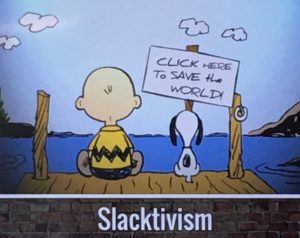In late January, LBS hosted J-Term, January 20-22. On the night of January 20 and during the day on January 21st, Dr. Walt Mueller of CPYU presented a number of insightful findings on youth culture, while challenging us to know our culture so we can effectively point students to the gospel. The following are my notes from both sessions with Walt.


Notes from the Tuesday Night Open to the Public Session: “No Parent Left Behind”
- Introductory Concepts:
- If you care about students, then being attentive to their culture is essential.
- The world that we live in today is in many ways safer than the world of the past, yet we live in a culture that is in fear of everything.
- Here are five things that we need to know about culture, that will help us as we point children and teens to Jesus:
- ONE – God is in control and present and working all the time
- TWO – Relationships scream louder than culture
- THREE – FIVE – Three possible responses to culture
- Unrealistic Optimism – We forfeit the influence that we can and should have in their lives
- Alarmist pessimism – The idea that we need to just hold on until Jesus returns
- Informed Biblical Realism – Be informed about teen worldviews so to help them to discern
- What are some cultural realities?
- Age Aspiration – The idea that young people want to be treated as older than they really are. (Consider how the health industry has turned being healthy into an idol)
- Age Compression – Kids 8 and under are being challenged by technology in ways never before seen.
- Anxiety issues are at epidemic levels
- Age Extension – Despite all the development trends of kids aging different/quicker than the past, we now have delayed adolescence at the same time
- What are the two main tasks of adolescence?
- “Who am I?”
- “What do I believe?”
- Why are children so vulnerable?
- Because childhood is a time of trusting and believing
- Because they are growing.

The following are ways that they are growing:
-
-
- Cognitively – Brain development is now understood to be complete around age 25. This should be a call for us to be in their lives.
- Socially – Relationships are being developed, maintained and shaped.
- Spiritually – Faith is either becoming more and more personal or it is something that they abandon. This all happens as they deal with the questions of their faith. In today’s world, they are being exposed to all types of things that they can believe in.
- Physically – They are growing in physical ways and they are being challenged to grow faster than their natural growth schedule.
- Sexually – They are growing sexually and the church needs to talk about that.
-
Truth: We need to realize that while we are parenting our kids, God is parenting us
Notes from the Tuesday at J-TERM Session: “Engaging the Soul of Youth Culture”

Opening remarks:
- We need God’s word to help us to examine the world we live in
- We need to practice “dual listening,” which is listening to “the world” and “the word” so we can discern God’s heart
- The greater the wounds that kids have the more open they are to the message of culture.
What is culture?
- Culture is:
- Culture is the soup that our kids swim in every day. This should heighten the task in front of us in bringing them to God’s word.
- Culture is the mirror that shows us how kids/teens are being shaped and guided
Did you know that the marketers know our kids better than us?
Walt’s thoughts on self-esteem:
- We talk about self-esteem so much/strong that we reduce the need for a savior
- Did Jesus say “come follow me” or “go and follow yourself”?
- Book recommendation: The Coddling of the American Mind
Three ways that we see too much me:
- Emerging Narcissism – The excessive interest in self is becoming more and more
- Book recommendation: The Narcissistic Epidemic: Dr. Twenge
- Marks of Narcissism
- Me-centered universe
- Self as supreme authority (this can be affirmed as parents opt out of directing their kids and let them make choices)
- Above the rules or they make their own rules
- Believe self to be better than or superior to others
- Lack of empathy towards others
- Be encouraged to observe “Slactivism” as a trend

- Check out “virtue signaling” – the action or practice of publicly expressing opinions or sentiments intended to demonstrate how good we are
- Expressive individualism – Celebrating your style and the freedom you have to be who you want to be.
- The idea that my highest loyalty is to myself
- True happiness comes from being true to yourself
- My intuition is my final arbiter of truth
- I’m guided by what seems best and feels best to me
- Jonathon Grant – “The culture of individualism has become the wallpaper of the world”
- Fluid identity – The trend that we see to claim to be whomever you want to be
How do we do youth ministry in this new and confusing world?
- We need to know that this is an incredibly complex issue
- See Peter Lyons’ article – to find article google his name and the word “transformed”
- We need to know that don’t own the conversation
- We need to know that if you don’t support gay/sexual minority rights that you will be seen as an ignorant bigot
- We need to repent and ask for forgiveness as necessary
- We need to know that it’s not just something happening out there
- We need to know that you may be the only voice of truth that some will hear from
- We need to know that kids are incredibly vulnerable to the cultural narrative
- We need to know that child-centered parenting has accelerated cultural change on issues of sexual identity practices
- We need to know that we will be forced to face some very difficult and uncomfortable and new situations
- We need to know that the world that we once knew is not the world we live in now
- We need to know that there was a day when the top 4 influences in kids’ lives were in agreement. (Those top four are family, school, friends, church) By the time we get to 1980, those four are not in agreement. In addition, the hierarchy of those 4 influences got reranked, and as we approach the present this continues to happen and additional sources such as social media have inserted themselves into the hierarchy.
- We need to know that scripture is being bound by culture by many
- The gospel isn’t an entry strategy to life and an exit strategy from life, it is meant to impact all of life
What are some ways that we can lead our churches in the midst of these challenges?
- We need to value marriage and faithfulness
- We need to battle pornography
- We need to be prepared to deal with sexual abuse reports
- We need to teach about God’s view’s on sexuality and singleness
- We need to lead people to grace amidst their brokenness
- Instead of talking about sexual purity, talk about sexual integrity and redemption and forgiveness
- Here are some ways to talk:
- The postures that Jesus has —- “But I tell you this” and “Consider this”
- Define “love” and what biblical love looks like in a marriage
- Here are some preventative steps:
- Educate and assist parents
- Encourage and allow honest dialogue
- Discuss the media’s portrayal of sex and other topics
- Find a Christian counselor in your town now rather than later
- Your church must have the appropriate policies on prevention plans, background checks, and an action plan in the event of an incident
Here are some key thoughts for session 4: “Born to Be Wired”
Walt’s opening comment for the session set the framework:
- Gordon Moore, one of the leaders for Intel, made the following comment which has been termed “Moore’s Law” – the exponential rate of technology will double every year.”
- That is troubling for some and a given for others.
There is a distinction of those using technology today
- Boomers and older are known as Digital Immigrants
- Those born in 1995-2012 are defined as Digital Natives.
Key thought —– “Remember that technology can be a powerful gift from God as it relates to missions and communication.”
Two big questions:
- What is social media and technology doing to us and our kids?
- What am I doing with social media and technology to bring glory to God?
Walt Highlighted the movie Elsie Fisher in 8th grade as a picture of a middle schooler growing up in this generation.
A major takeaway that was given in this session is that the social media fulfills an unmet need of acceptance in a comparison world.
- It is the primary area to curate one’s identity of who they are.
- Walt used the idea that social media is the “fitting room” of when a student can curate or create who they are in order to be liked.
- Pastors, youth workers, volunteers, parents, adults, need to work hard to connect and relate in order to communicate that you are valuable, loved, significant.
Final thought —- Kids are sleeping with their phones in their rooms because they want “to be there for their friends”
- Developmental research clearly shows students need 9 hours and 15 minutes of rest each day for their health.
